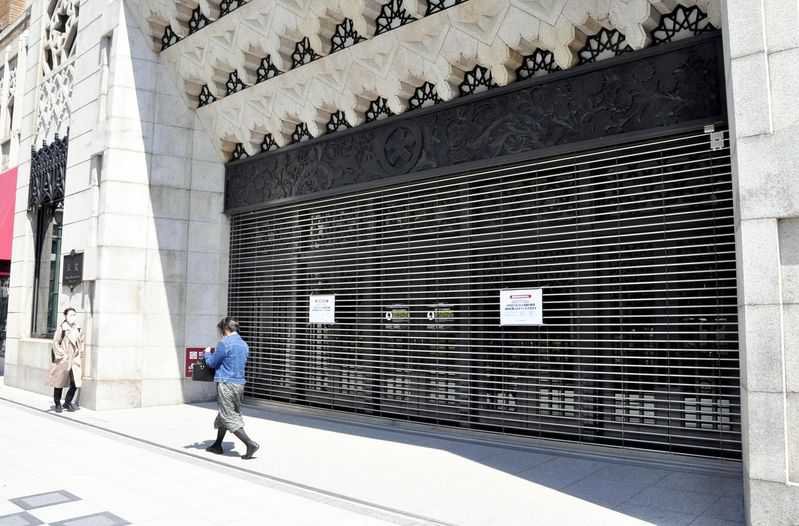Bank of Japan survey highlights a hardcore situation facing regional economies
13 April, 2020

A Bank of Japan article on regional economies casts a harsh light on a predicament where the spread of novel coronavirus attacks are affecting various parts of the country.
According to the central bank’s Sakura record for April released Thursday, personal consumption offers plummeted and the production of automobiles and various other products offers been seriously influenced. Amid such a predicament, demand and offer could “vanish” altogether, and some corporations say the affect of the coronavirus is certainly higher than that of the collapse of Lehman Brothers.
Demand drops across board
The report is full of bitter statements such as for example one from an accommodation business in the Shikoku region, which stated: “The quantity of reservation cancellations increased rapidly. Events scheduled local have already been cancelled one after another. There is absolutely no indication of bottoming out.”
Actually, Kyoto Prefecture, just about the most popular tourist destinations in Japan, is in a serious situation. Ryokan Kohro, a resort near a sightseeing location in Nakagyo Ward, Kyoto, saw its occupancy level drop to 30% in March. It really is not even half of the common level. A 70-year-old chairman of the hotel said, “It’s going to be difficult unless guests come back by around autumn.”
The report also includes a statement from a restaurant business in the Kanto and Koshinetsu region, which said, “Sales at some restaurants fell by 50% from a year ago due to the declining number of office drinking parties and other reasons.” As observed in this statement, the cafe industry is severely struck by the pass on of the coronavirus illness.
The government has declared circumstances of emergency for seven prefectures including Tokyo and Osaka Prefecture. In these prefectures, an increasing number of outlets such as shops are temporarily shut or have shortened business hours. Under such a situation, the effect on personal usage is highly more likely to spread from the resort and cafe sectors to different sectors.
Naoya Araki, the president of H2O Retailing Corp., which operates Hankyu Hanshin shops, told The Yomiuri Shimbun, “Do a comparison of to the Lehman collapse and the usage tax hike, the latest drop is incomparably large.”
Production halted
Export-oriented manufacturing companies happen to be also being severely affected.
“I keep informing myself that the consequences of the new coronavirus will relax in one or 8 weeks. But if the current circumstances lasts for another half a year or a time, my company will deal with financial troubles,” said a supervisor of a car parts maker in Fukuoka Prefecture, which mainly techniques and repairs automobile seats. An automaker to which the parts maker supplies products has been reducing production since February, therefore the quantity of orders received in April can be likely to decline by nearly 40% from its original expectations.
In the record, a transport machinery company in the Kyushu and Okinawa place explained, “Concerns over a declining global demand for automobiles are producing future prospects considerably uncertain.”
Toshiro Miyashita, the head of the Bank of Japan Fukuoka Branch, told a press conference on Thursday: “With the amount of infected people increasing, corporate organization sentiment rapidly deteriorated found in April. Some firms are worried about whether they should be able to maintain the production systems at their plants.”
If demand and development decline all together, it'll affect both occupation and income. In the latest report, the central lender downgraded its assessments on occupation and income products for five regions including Hokkaido, Hokuriku and Chugoku.
The report also reported there are moves in a number of regions in which companies, mainly in the service sector, have stopped hiring new employees. A precision machine parts enterprise in the Tohoku location said in the report, “We did not renew contracts with non permanent staff because of a decline in creation.”
Source: the-japan-news.com
TAG(s):
